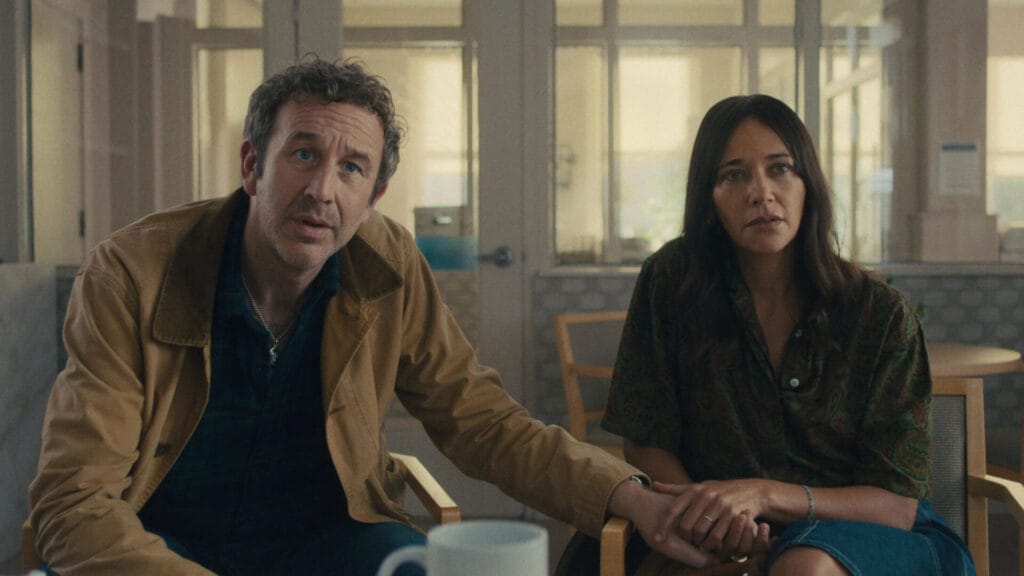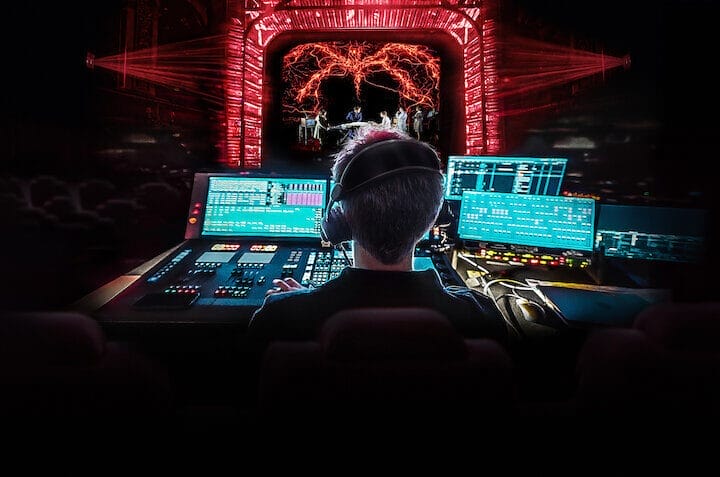Charlie Brooker’s series returns for its seventh season with “Common People,” an episode that critiques the steep costs of technological advancements in everyday life.
Starring Chris O’Dowd and Rashida Jones, the show revisits the darker tone of its first season. Has the more lighthearted style of recent seasons been abandoned?

The Plot
The narrative centers on Amanda (Rashida Jones), a schoolteacher, and her husband Mike (Chris O’Dowd), a working-class couple facing an unimaginable crisis: Amanda is diagnosed with a terminal brain tumor.
In a desperate attempt to save his wife, Mike is presented with a seemingly miraculous but ethically complex option: Rivermind, an experimental procedure that offers a digital copy of Amanda’s brain, allowing her to live on through a subscription service.
While the operation itself is free, the $300 monthly fee to keep Amanda’s digital consciousness active puts a significant strain on their already tight finances.
One critique astutely points out that casting well-known actors like Jones and O’Dowd, while delivering strong performances, might detract from the show’s claim of portraying “ordinary people.” This observation raises an interesting point about how media often depicts working-class struggles through a familiar, perhaps less authentic, lens.
As the story unfolds, the true cost of this technological lifeline becomes painfully clear. The initial subscription severely limits Amanda’s existence. She can’t travel beyond a certain range without falling into a coma, and her sleep is no longer restful because her brain is used as a server for Rivermind’s operations. The situation deteriorates further with the introduction of intrusive ads that Amanda involuntarily recites, jeopardizing her job as a teacher. To escape these limitations and regain some semblance of normalcy, they need to upgrade to pricier tiers like Rivermind+ and Rivermind Lux. This tiered service structure, with its escalating costs and declining quality of life in the basic plan, serves as a biting satire of the subscription economy, mirroring tactics used by many companies where essential features are often locked behind higher paywalls.
About the Episode: Self-Critique? Brooker’s Final Nod to Netflix?
The parallel to Netflix’s service model is even explicitly noted in one analysis: Coincidence?
It seems unlikely, especially given the numerous rumors about the show’s end. It appears that, as in previous seasons, even Netflix isn’t safe from Brooker’s criticism.
“Common People” is a strong episode that returns to the show’s initial formula, with a nod to the first episode of the first season (the one with the kidnapping that garnered so much attention).
There are no major special effects in this episode, and even the technological advancements aren’t explicitly showcased. It’s more an episode about ordinary people, about workers who have nothing to do with tech hubs, choosing to focus on them and build a narrative around their way of life.
The critique is evident, direct; “Common People” doesn’t rely on metaphors, and everything here is plain, perhaps too direct. Technology, in a way, also takes away too much of our naturalness. Is the cost worth paying? Are we selling our souls? Is technology only for the privileged classes? Will we be able to afford the cost of all this technology?
A solid start to what promises to be another thrilling season.
Where to Watch “Common People”











